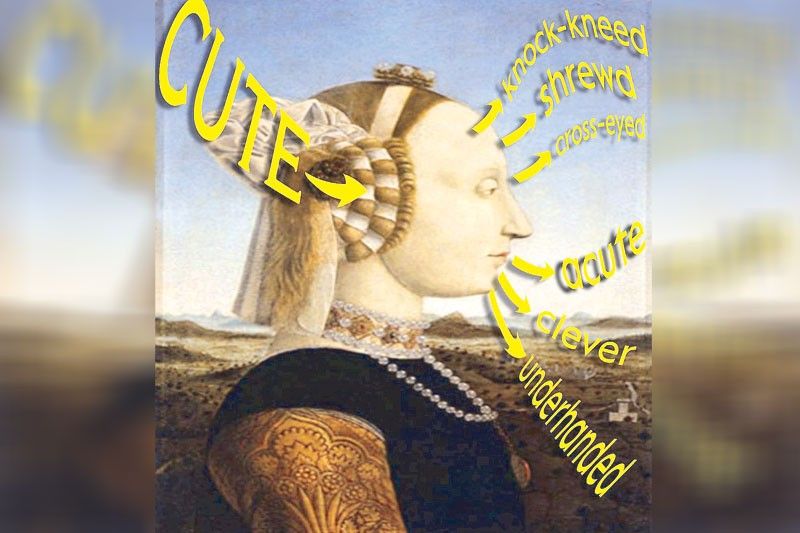Samurai vis-à-vis vernacular


While I had occasionally helped propagate my friend Jimmy Abad’s stance against the use of the word “vernacular” to refer to a native language or dialect since it initially referred to homegrown slaves my sharing of his peeve had been with a smidgen of doubt.
In a recent FB exchange with another writer-friend, Cristina “Jing” Pantoja-Hidalgo, I said that like her I was aware of Jimmy’s constant fallback on etymology whenever he expanded on his literary theories. But I held that while familiarity with etymological sources was fine, we should also acknowledge that living languages are always on the move, so that meanings change. And that I found awareness of evolving and newly-birthing terms more fascinating. That way, I said, we don’t get stuck on the past, but roll on towards the future.
“Vernacular” also often refers to architecture, as a term applied “to buildings designed in any style based on practical considerations and local traditions, in contrast to the ‘polite architecture’ produced by professionally trained architects to nationally or internationally agreed aesthetic standards.”
But does that also mean that the adjective stays derogatory? I would say not. It stays serviceable.
Take the word “cute.” I recall a claim that it originally meant “knock-need and cross-eyed.” But that has proven apocryphal. Etymological research uncovers that “cute has gone through a thorough historical transformation.” It was derived from and was a shortening of “acute” (and was sometimes actually spelled ’cute) — which then meant “clever, shrewd, often in an underhanded manner.”
Only much later did it get to mean “attractive or pretty especially in a childish, youthful, or delicate way, as a cute puppy, a cute smile.” And yet it has also retained its original meaning, which is why we sometimes say, “Don’t get cute with me.” Or when we rate something as obviously straining for effect, “The movie’s too cute to be taken seriously.”
With its unlikely evolution, “cute” has come to serve us in more ways than one.
While recently enjoying the docu-drama Age of Samurai on Netflix, I learned that “samurai” — warriors who were considered as a type of hereditary nobility as well, enjoyed that status as well-paid retainers of the daimyo (the great feudal landholders) from the 12th century to their abolition in the 1870s. But that for the previous four centuries, “samurai” had simply referred to “servants.”
“The word samurai comes from the Japanese verb saburau, which means to serve someone and look up to them.”
Ah, so, next time Jim-san and I get together for coffee (a welcome ritual pandemically made rare), I can tell him that referring to vernacular writing may not be so bad no more, ‘bay, — lest we fail to enjoy our samurai sushi rolls with our Sumiyaki brew at UCC.
And we can still be “chums” — even if that’s an outdated term that Gen-Xers, Gen-Y’s, Milennials, Gen-Zers, Generation Alpha (born 2010 or after) and, why, even OK Boomers don’t deign to use at all. As for us of the so-called Silent Generation that preceded Boomers, we can still enjoy the old-fashioned ring to it — while knowing that it first came to refer to late-17th century British “roommates,” and in the early 19th century, also “prisonmates” in Australia.
As long we keep abreast of vibrant terminology, we’ll be A-okay. We may then take offense at being tagged as a doofus or a dweeb. Why, that’s throwing shade, for which we ought to burn back and double down on impacting street cred, as part of the woke that’s capable of one tweet wonder.
A fellow poet once questioned my use of “do-rag” in a poem. I had to explain that it’s cloth used as headgear, the topmost part of the pirate’s costume in the poem. No, it isn’t “do-over” or yet another attempt, and has nothing to do with basketball’s one and done, and-1, or triple double. But it can party with such other attire as a muscle tee, a onesie, a singlet or a hoodie.
Like it or not, as word mavens often stress, language is constantly evolving. There’s irreducible treasure in keeping up with neologisms, slang, and the urban lexicon. Per Dictionary.com, 650 new words were added to keep up with the rapid pace of 2020.
Among the ones I find tempting to use are “camnesia” (either when one forgets to take a picture of an important moment, or has done something on webcam that one shouldn’t have); “ecoanxiety” (a dread of environmental perils, especially climate change); “excursus” (a detailed discussion of a particular point in a book); “hodophobia” (an irrational or disproportionate fear of traveling); “janky” (inferior in quality, such as Sinovac?); “nothingburger” (a highly publicized event that is said to have less impact or significance than expected, as with the advent of Sinovac?)…
Then there there’s “incogitant” (thoughtless, inconsiderate). And “empty suit” (slang for “an executive, manager, or official regarded as ineffectual, incompetent, or lacking in leadership qualities such as creativity and empathy”). Both seem familiar in our suddenly pro-vaxx environs.
Not a nonsense word is “yeet” — although that’s how most people use it. Originally a hip-hop dance move, yeet has expanded incredibly and can now be used as an exclamation, a verb, or even a noun. It means “to throw,” but can be used as an exclamation while throwing something. “I’m going to yeet this!” Basically, it can be used to describe anything done with vigor.
Given the constant clusterf**ks we’re privy to, one can only wish for “sleptigarious” action. It’s “something done subversively, sneakily, and with no small amount of luck and cleverness.” We can yeet ’em all, and give a throwback 23-skidoo salute when the DDS of dementia and their lodi are all done and dusted.



















